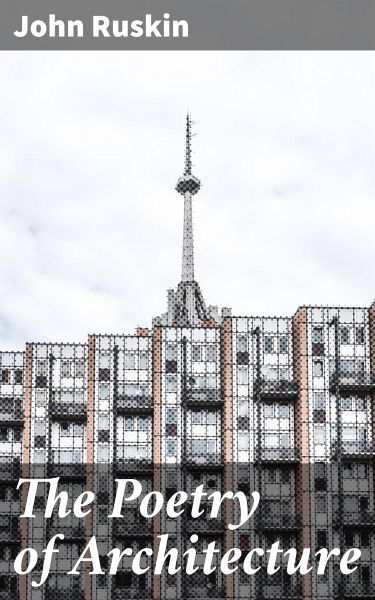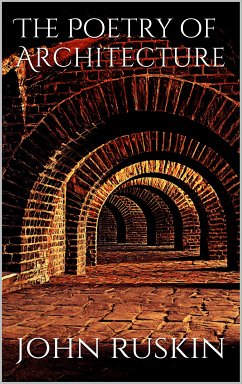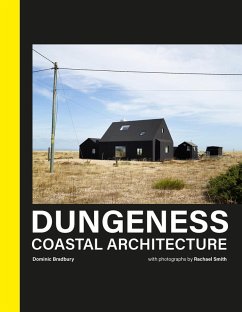
The Poetry of Architecture (eBook, ePUB)
Enriched edition. Or, the Architecture of the Nations of Europe Considered in its Association with Natural Scenery and National Character
Kommentar: Pemberton, Clarissa / Redaktion: Good Press

PAYBACK Punkte
0 °P sammeln!
In "The Poetry of Architecture," John Ruskin presents a profound exploration of the relationship between architecture and the human experience. Through a lush and evocative literary style, Ruskin argues that buildings embody artistic principles akin to poetry, engaging the observer's emotions and intellect. This work, emerging from the Victorian context of rapid industrialization and societal change, critiques the mechanization of architecture while celebrating its potential as a vessel of beauty and moral integrity. Ruskin's philosophical musings blend aesthetic theory with practical observat...
In "The Poetry of Architecture," John Ruskin presents a profound exploration of the relationship between architecture and the human experience. Through a lush and evocative literary style, Ruskin argues that buildings embody artistic principles akin to poetry, engaging the observer's emotions and intellect. This work, emerging from the Victorian context of rapid industrialization and societal change, critiques the mechanization of architecture while celebrating its potential as a vessel of beauty and moral integrity. Ruskin's philosophical musings blend aesthetic theory with practical observations, making the text a seminal contribution to both architectural theory and the broader field of environmental aesthetics. John Ruskin, an influential art critic, social thinker, and philanthropist, drew from a rich tapestry of experiences that informed his architectural philosophy. His upbringing in a cultured environment and education in the arts nurtured his passion for nature and craftsmanship. Ruskin's profound appreciation for Gothic architecture and historical styles voiced a call for a return to more authentic forms amidst the desolation of industrial architecture, which he viewed as detrimental to both society and the psyche. "The Poetry of Architecture" is an essential read for anyone interested in the intersection of art, architecture, and society. This work not only stimulates scholarly discussion but also inspires modern readers and architects to reconceptualize their approach to design. By inviting us to perceive buildings as living narratives, Ruskin's insights remain relevant, encouraging a deeper appreciation for the built environment around us. In this enriched edition, we have carefully created added value for your reading experience: - A succinct Introduction situates the work's timeless appeal and themes. - The Synopsis outlines the central plot, highlighting key developments without spoiling critical twists. - A detailed Historical Context immerses you in the era's events and influences that shaped the writing. - An Author Biography reveals milestones in the author's life, illuminating the personal insights behind the text. - A thorough Analysis dissects symbols, motifs, and character arcs to unearth underlying meanings. - Reflection questions prompt you to engage personally with the work's messages, connecting them to modern life. - Hand-picked Memorable Quotes shine a spotlight on moments of literary brilliance. - Interactive footnotes clarify unusual references, historical allusions, and archaic phrases for an effortless, more informed read.
Dieser Download kann aus rechtlichen Gründen nur mit Rechnungsadresse in A, B, BG, CY, CZ, D, DK, EW, E, FIN, F, GR, H, IRL, I, LT, L, LR, M, NL, PL, P, R, S, SLO, SK ausgeliefert werden.













